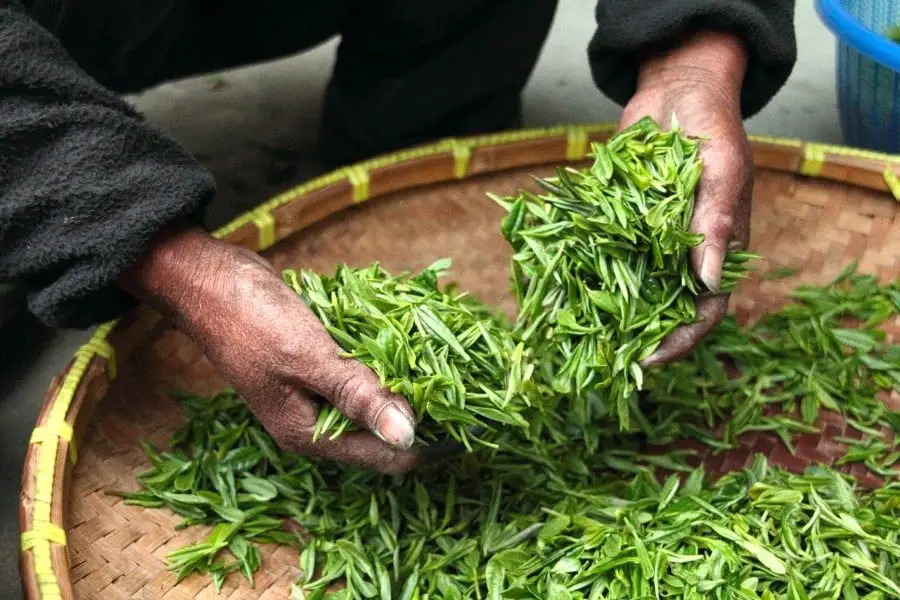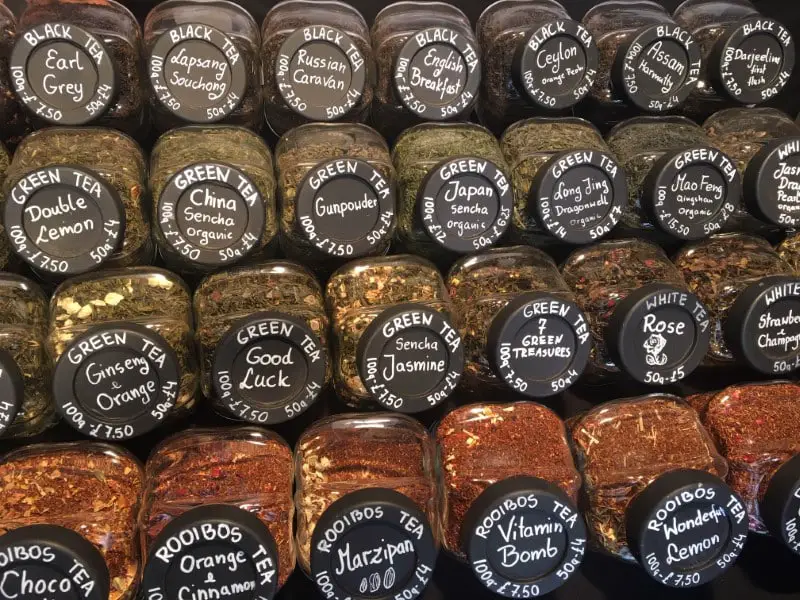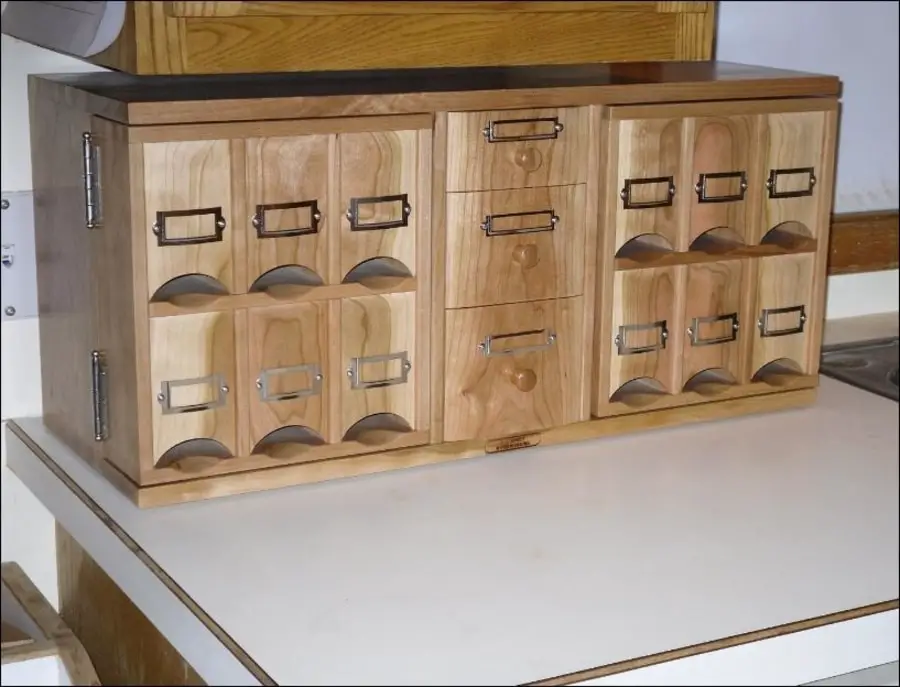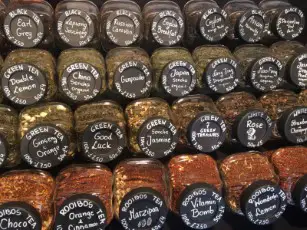The expiry date usually means the product is no longer usable or may be harmful to you. When it comes to the question does green tea expire – or pretty much most tea varieties, they don’t expire or come with an expiry date.
Here’s the quick answer regarding the expiry of green tea…
Does Green tea expire? Green tea mostly comes with a “best before” date of around 12-36 months. It should be consumed before this date. Beyond this date, it is still usable – but will gradually lose quality and flavor. To enjoy its freshness and benefits, aim to drink it at least six months prior to the best-before date.
So in the real sense of what it means by an “expiry date”, green tea doesn’t actually expire at all, it just means that you can expect the promising quality of green tea only before the “expiry” or “best before date”
When using expiry dates, many tea brands try to convey the point at which the tea will lose its flavor profile …and most importantly the freshness that is unique to green tea.
And especially as green tea is known for its freshness, after the expiry, the change in the taste of your green tea may be quite prominent.
Does Green tea expire?
So in the green tea version of what means by expiry or best before date, they usually work within a time frame of around 12-36 months for both green tea leaves and green tea bags.
This period can shorten depending on the storage conditions of both green tea bags and green tea leaves.
As we mentioned in our brief answer, all in all, if you intend to drink green tea for its freshness and health benefits, then it’s recommended that you drink it at least six months prior to the “best before” date that it usually comes with.
There is, however, a point at which green tea could potentially go bad. More on that later.
Assuming we’re talking about a reasonable time after the best-before date – or the “perceived” expiry date, the health benefits you get from green tea may diminish.
So if those are your concerns with green tea expiring or not, you should not consume green tea after the “best before” date.
And in general, it’s better to completely avoid having green tea that’s passed 2 years after its expiry or “best before date”.

Green tea bags or tea leaves, which expire faster?
In general loose green tea leaves will have a longer expiration time than your average store-bought green tea bags.
This is because tea bags usually contain dust or fannings, these are finer “chopped” particles of tea that have a much greater surface area – which is designed to release their tannins and flavors much more quickly than that of loose leaf tea.
This also applies to matcha, a pure green tea powder that has an expiry of only around 1-2 months.
When comparing the expiry of green tea leaves, big whole leaves can retain their freshness for longer and will likely expire later than fine green tea leaves.
Green tea expiry in comparison to other types of teas?
Green loose leaf tea is a more delicate tea variety, And when stored incorrectly, they tend to lose their scent, color, and flavor faster, even before expiry.
So, for example, if you keep a fresh pack of green tea in direct sunlight for 30 minutes, it will likely lose much of its flavor profile instantly.
Expiry dates of flavored green teas
Also, since green tea is less oxidized when compared to other types of teas like dark, black, and rooibos tea, it can expire (and by that I mean lose quality) much faster.
The same applies to teas like white and light oolong teas. See my general guide on Does Loose Leaf Tea Expire which encompasses other types of tea expiry dates.
Another point to mention is that green tea goes through less fermentation processing. This makes its shelf-life or “best before” use shorter when compared to dark teas, black tea, or rooibos tea.
The same goes for flavored green teas, flavored green teas can expire (lose quality) faster than pure tea varieties.
Many tea sommeliers recommend not using flavored green tea beyond – or even near – its expiry date. This applies even if it may have retained its flavor, as it can cause other potential health concerns with the flavoring additions.
Does green tea “go bad” after expiry?
The flavor profile of green tea after expiry, or after the best before date, results in it losing it’s rich and fresh flavor.
After this expiry date, green tea doesn’t go “bad” in a way that is unable to be consumed …it’s just that the flavor profile before and after the expiry date will not be the same.
I should caveat this by saying that if your green tea was stored under perfect conditions, then it may be possible for it to retain more of its flavor profile for some time after the expiry date. It’s just better not to go through the “not knowing” if it could have been better!
So keep in mind when purchasing, that green tea doesn’t go “Bad” soon after its expiry. But it will lose its original flavor profile – the flavor before the expiry or best before date.

How to know if green tea has gone bad after expiry?
If you have green tea that you found in the back of the cupboard and is way beyond it’s best before date, then you may start to get into the “gone bad” zone.
Signs of green tea going bad
To check if your green tea has gone bad – in the way many products do long after expiry, then you can check for signs.
Check if the tea bags or leaves show any signs of mold, or perhaps it gives out an unpleasant odor. And check if there are any bugs or if they’re wet or moist and are smelly.
If the green tea leaves or tea bags give out any one of these, discard them immediately.
It’s also important to remember that you can also experience these signs of green tea gone bad (unusable) – even before the set expiry if proper storage is not met.
Additional signs
If these signs don’t show up and the green tea has passed expiry, there are few other methods to check if the green tea has gone bad. Below are some of them.
- Smell the green tea leaves or tea bags. If they have a good, strong smell or scent then it’s good to drink.
- If the tea doesn’t give out a good enough smell of freshness, then it’s likely off, but could still be good. Should you wish, you can check further by placing them in a heated teapot with water and smell them again. Good tea (tea that hasn’t gone bad) will smell good and give out a good scent in a heated teapot.
- If the tea doesn’t give out a good scent in the heated teapot, best will be for you to throw them away. If fit smells great then it’s safe to drink.
Note: Make sure you brew this green tea at a temperature of about 194°F (90°C) for 3-5 minutes. This will kill all the bacteria in the leaves if present.
Note – Drinking green tea after expiry has no harm or health concerns as intense as you may expect. Green teas don’t culture bacteria that multiply when kept for too long like in many other tea varieties. There are no known reports, or evidence of deaths or long term severe illnesses from drinking expired green tea. However, but be cautious about green tea that is a long way past the best by date.
How to store green tea to last longer than the expiry or best before date?
To maintain the quality of green tea beyond it’s “best before” date, keep your green tea away from these 5 elements: moisture, heat, light, air, and odor.
Use a suitable container
Especially keep your green tea bags and green tea leaves in an airtight odor-free container.

Try to keep your green tea bags and green tea leaves in a container that’s as airtight and odor-free as possible.
If using a glass container, make sure it’s colored, so light is not absorbed easily – a completely opaque container is much better.
Choose a container that’s as small as possible to minimize contact with air and moisture.
Make sure the container is not frequently opened, as this will expose the contents to air. When tea leaves are exposed to air, it increases the moisture level of the leaves, any excess water in the air acts as a catalyst to speed up the deterioration process – and therefore speeding up expiry.
Exposure to air
Aside from this, the moisture from air contact will also cause the chemical components in green tea – chlorophyll and vitamin C to become vulnerable to deterioration.
From this exposure, Chlorophyll encourages oxidization which then causes green tea to lose its “greenness” and turn a brown color sooner, this can occur even before expiry.
To finish then…
Try not to keep green tea waiting! Weigh up the time scale you’ll likely use it when making your purchasing decision. That will prevent you from buying more green tea than you’re likely to use up in a reasonable time scale.
Enjoy it while it’s fresh and you’ll get the most out of your purchase. use the right utensils to make your green tea too, so check out my tea wares for my recommended products!
